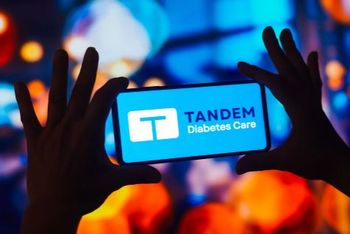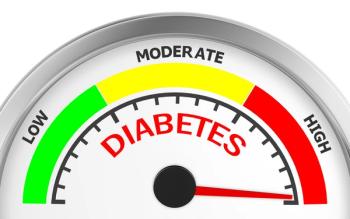
Despite its limitations for use in other populations, a high BMI proved a very good predictor of dangerous fat mass index in youth aged 8 to 19 years in this study.

Despite its limitations for use in other populations, a high BMI proved a very good predictor of dangerous fat mass index in youth aged 8 to 19 years in this study.

ENDO 2024. The expert panel suggests children, pregnant persons, adults aged ≥75 years, and adults with prediabetes consume more vitamin D than the recommended daily allowance.

Your daily dose of the clinical news you may have missed.

The interactive tool provides clinicians and patients a real-time look at GLP-1RA availability.

The pluripotent GLP-1 mimetic reduced risk for renal disease endpoints by 24% and MACE by 18% plus significantly retarded decline in eGFR vs placebo, study authors reported.

Findings underscore a need for public health initiatives to educate vulnerable populations on cardiometabolic risks, researchers report.

Your daily dose of the clinical news you may have missed.

Your daily dose of the clinical news you may have missed.

Your daily dose of the clinical news you may have missed.

DDW 24. New research shows patients with MASLD and T2D who used GLP-1 agonists had a reduced risk of progression to cirrhosis and HCC vs non-users.

Your daily dose of the clinical news you may have missed.

Men with diabetes had a greater risk of CVD, lower limb and kidney complications, and diabetic retinopathy compared to women with diabetes.

In the phase 1b trial, treatment with once-weekly subcutaneous CT-388 led to a statistically significant mean placebo-adjusted weight loss of nearly 20%.

Your daily dose of the clinical news you may have missed.

Safety and HbA1c reduction with efsitora alfa dosed once weekly was comparable to both daily insulin degludec and daily insulin glargine, announced Lilly.

New research shows that menstrual irregularity is associated with a higher prevalence of cardiometabolic conditions in women, even in the absence of PCOS.

Analyses of the SELECT trial found mean weight loss of 10.2% sustained for 4 years and comparable CV benefit with weight loss greater or less than 5%, or even weight gain.

There have been 224 reported injuries as of April 15, 2024, the CDC said, but no reports of death related to the app intermittently crashing and rebooting.

Results also showed that older adults, men, and Black adults face an increased risk of advanced stages of CKM syndrome.

Your daily dose of the clinical news you may have missed.

Diagnoses of diabetes increased the most in South Dakota between 2018 and 2021 at 18.45%; diagnoses decreased the most in Hawaii at 15.61%. More, here.

Naim Alkhouri, MD, a transplant hepatologist and a resmetirom investigator, talks here about the life-changing impact the drug will have for all touched by MASH.

Primary care is where early detection and treatment of liver disease should begin and as Dr Alkhouri highlights here, all the right tools are already at hand.

The national study on the true prevalence of metabolic dysfunction-associated liver disease is essential to screening, prevention, and treatment efforts, says AFL CEO Stiehl.

Adults receiving semaglutide for the first time achieved weight loss of 14.3% at 12 months vs 10.6% among those who had previously taken a different antiobesity drug.